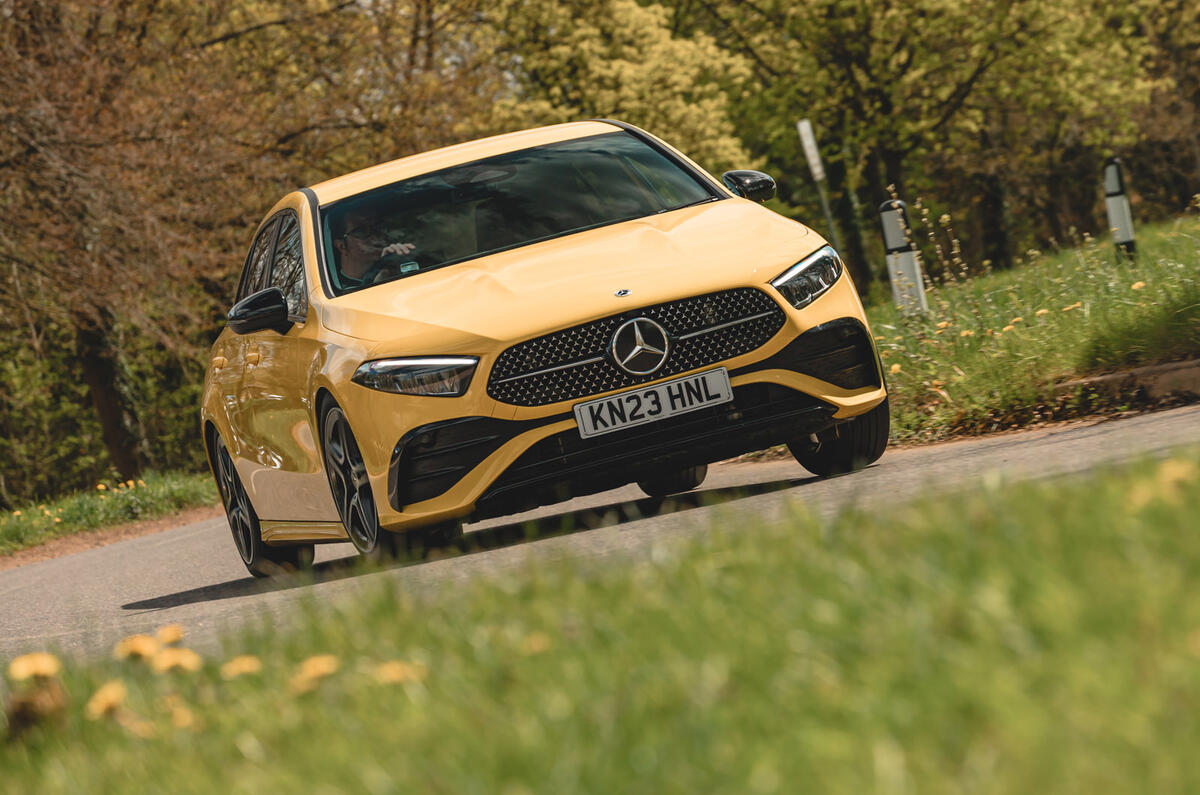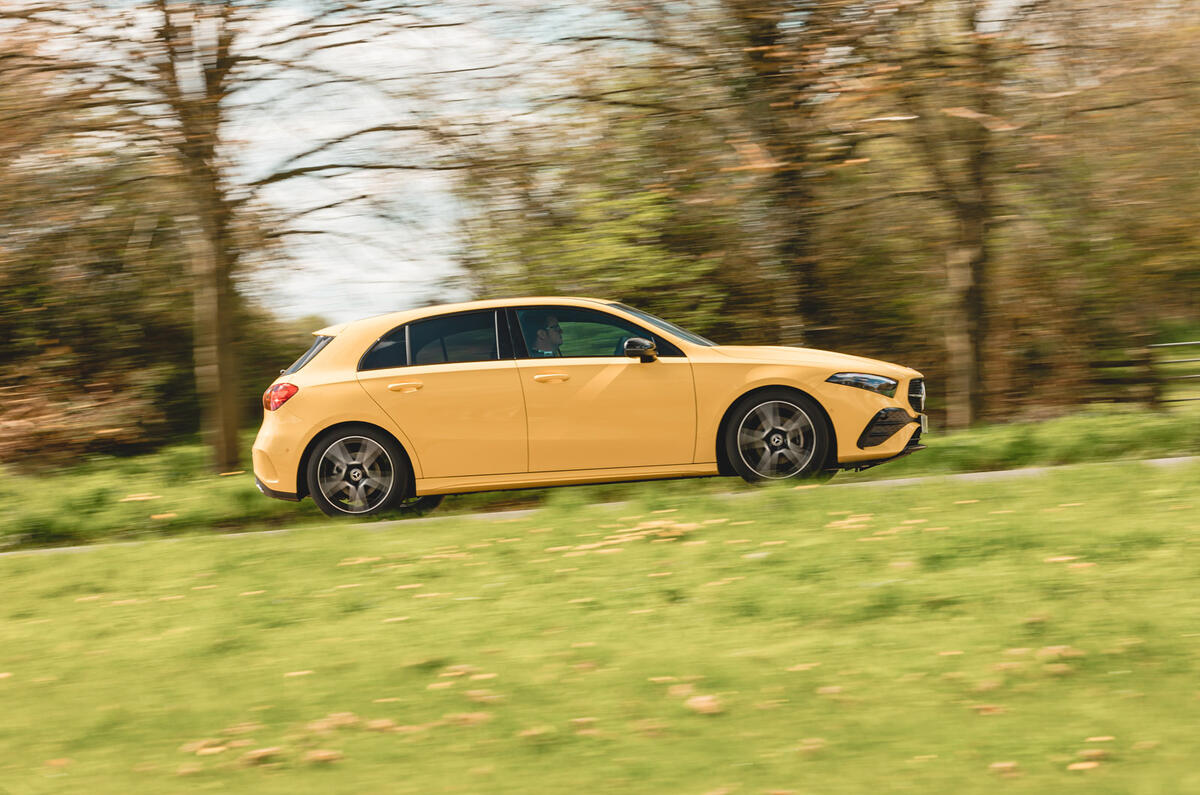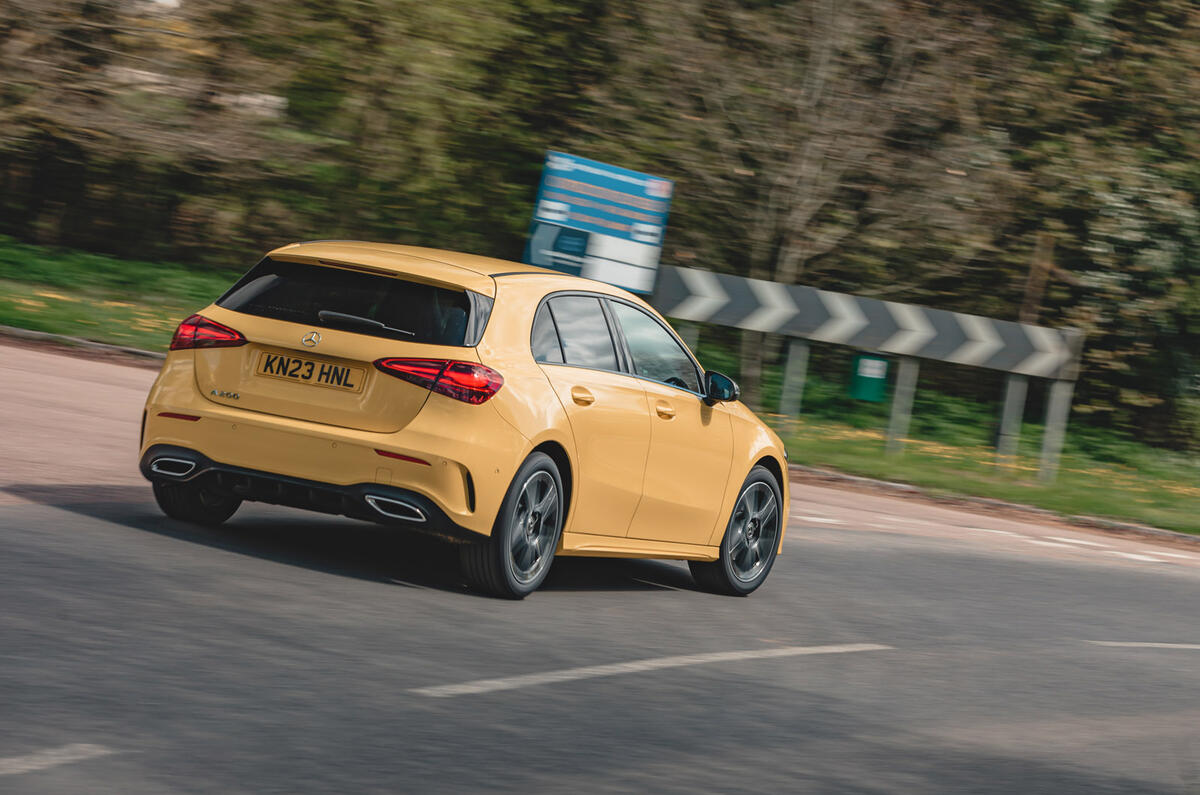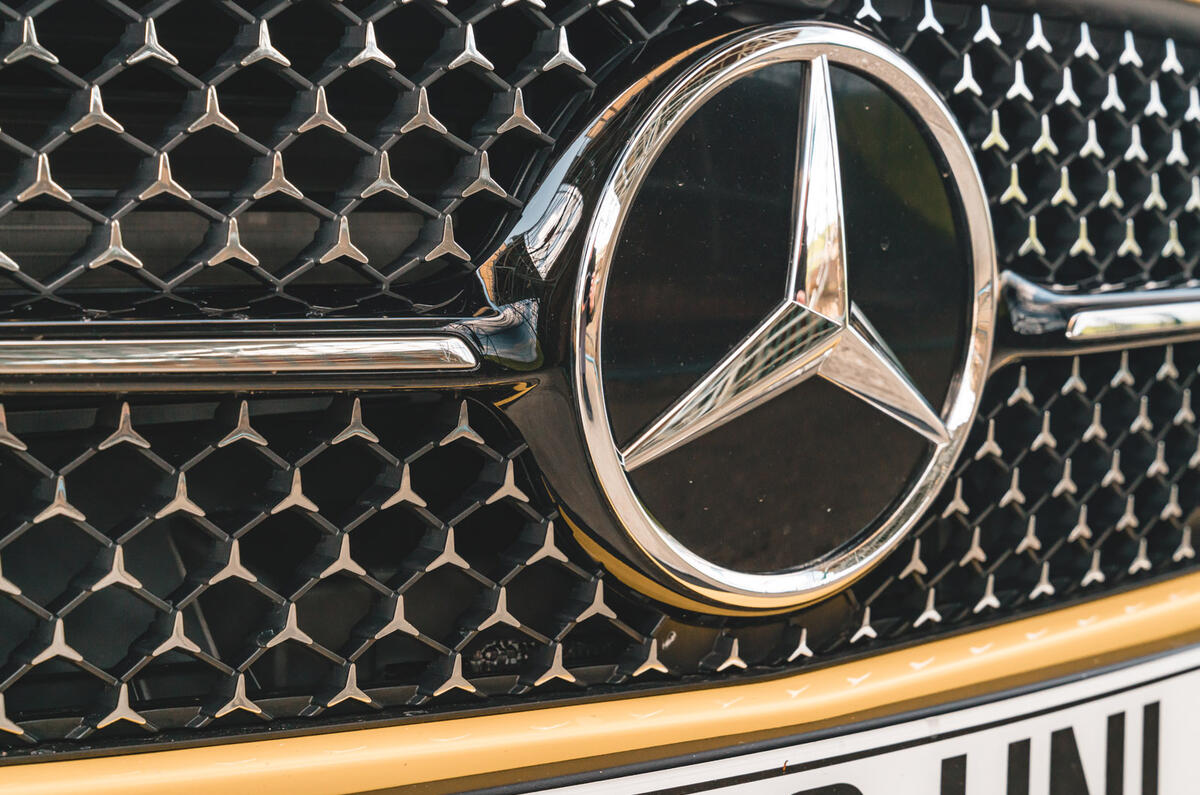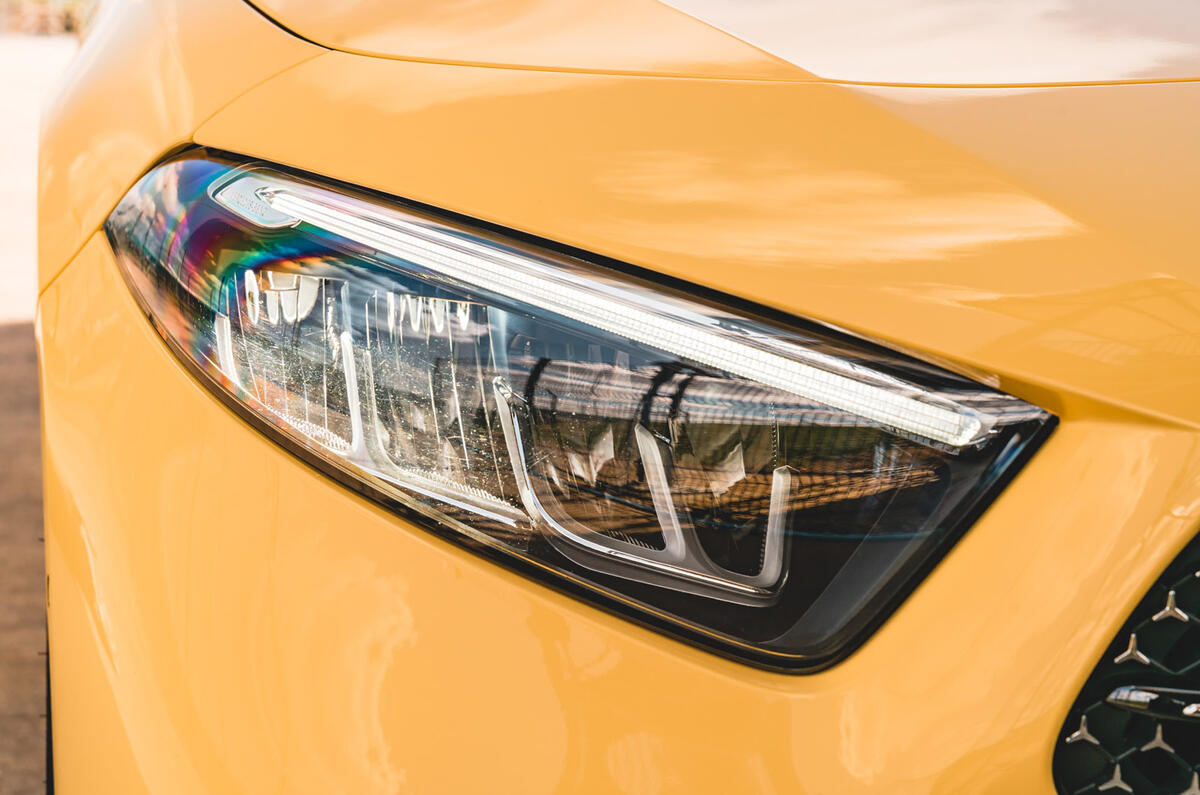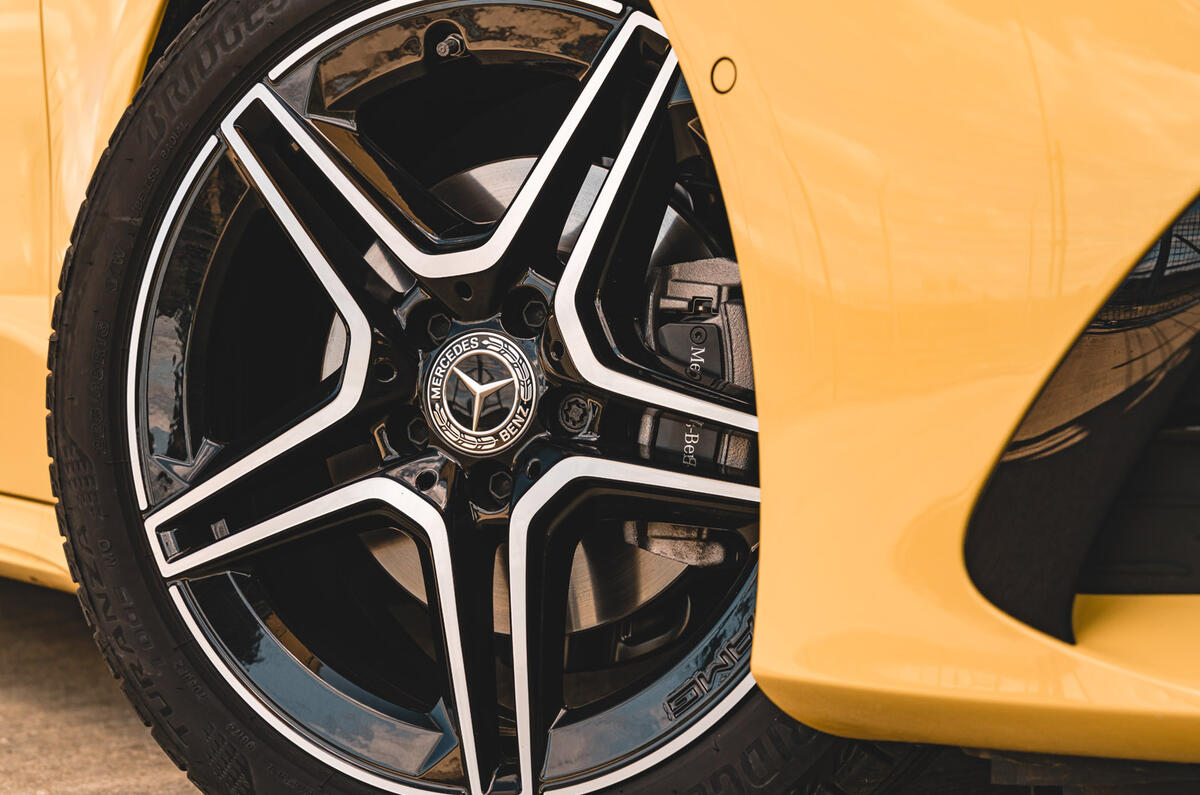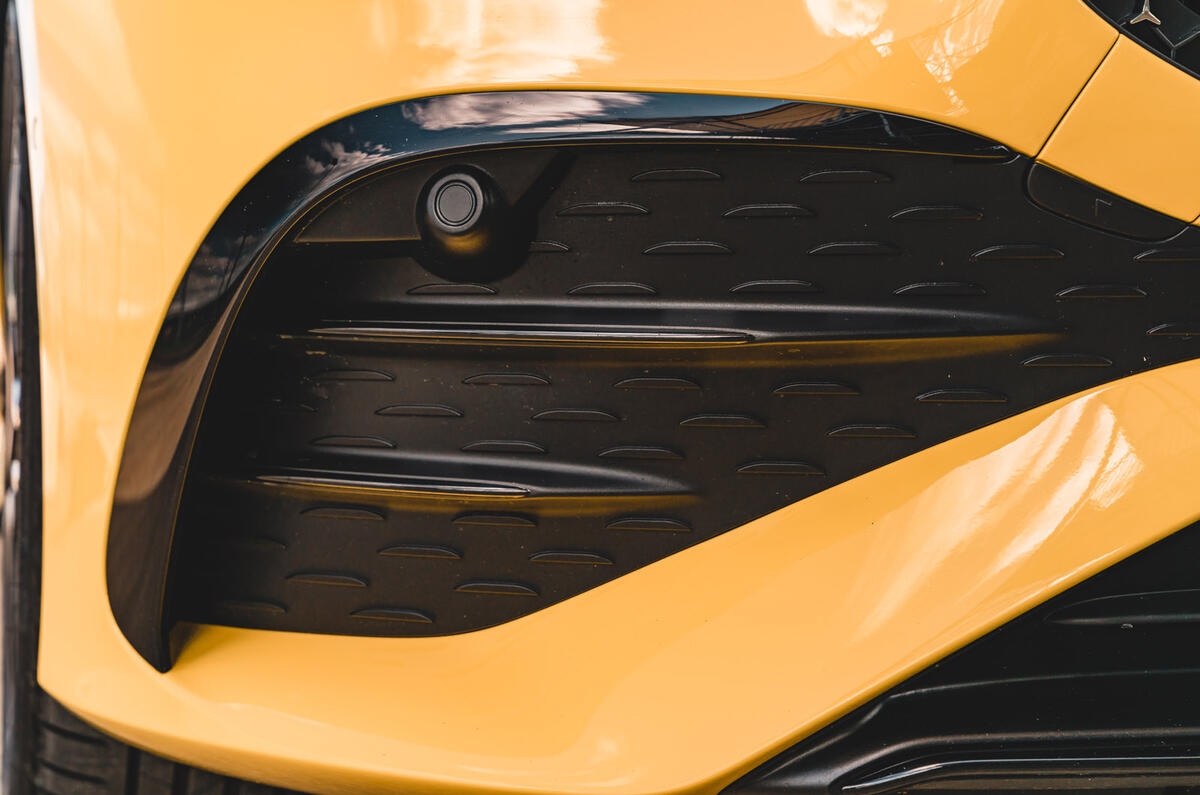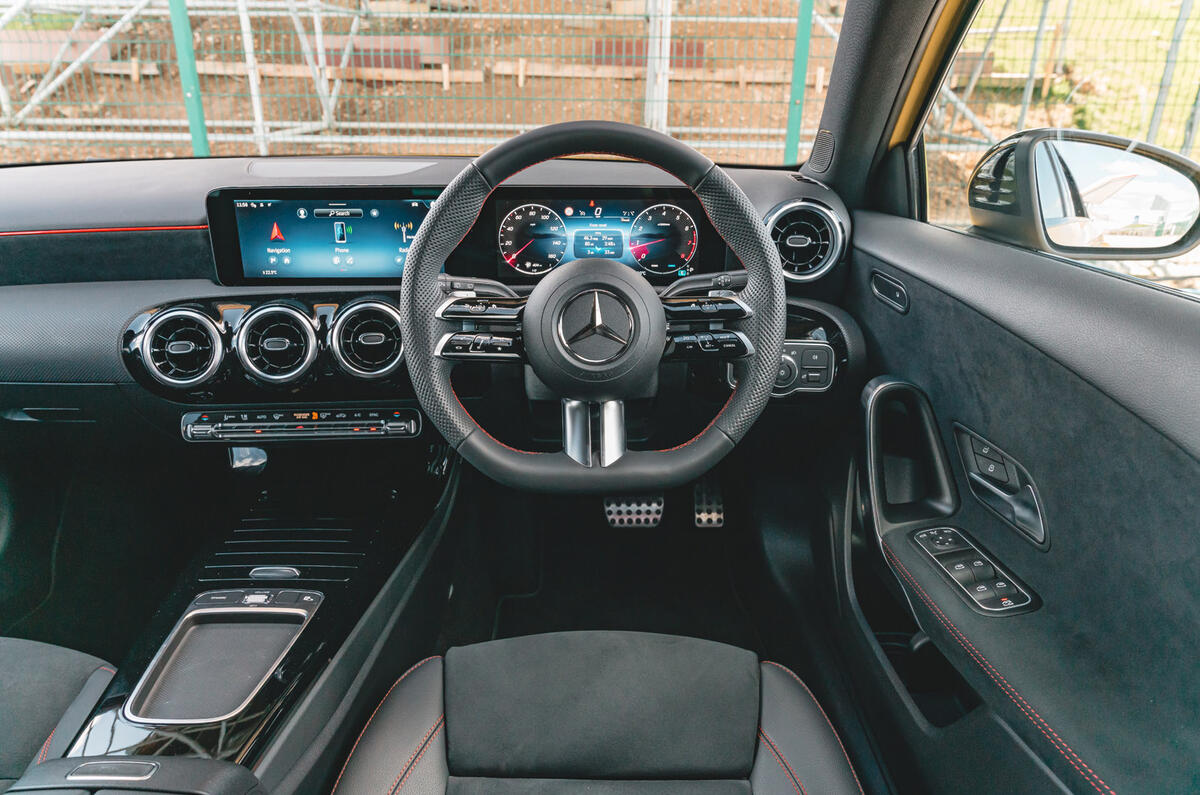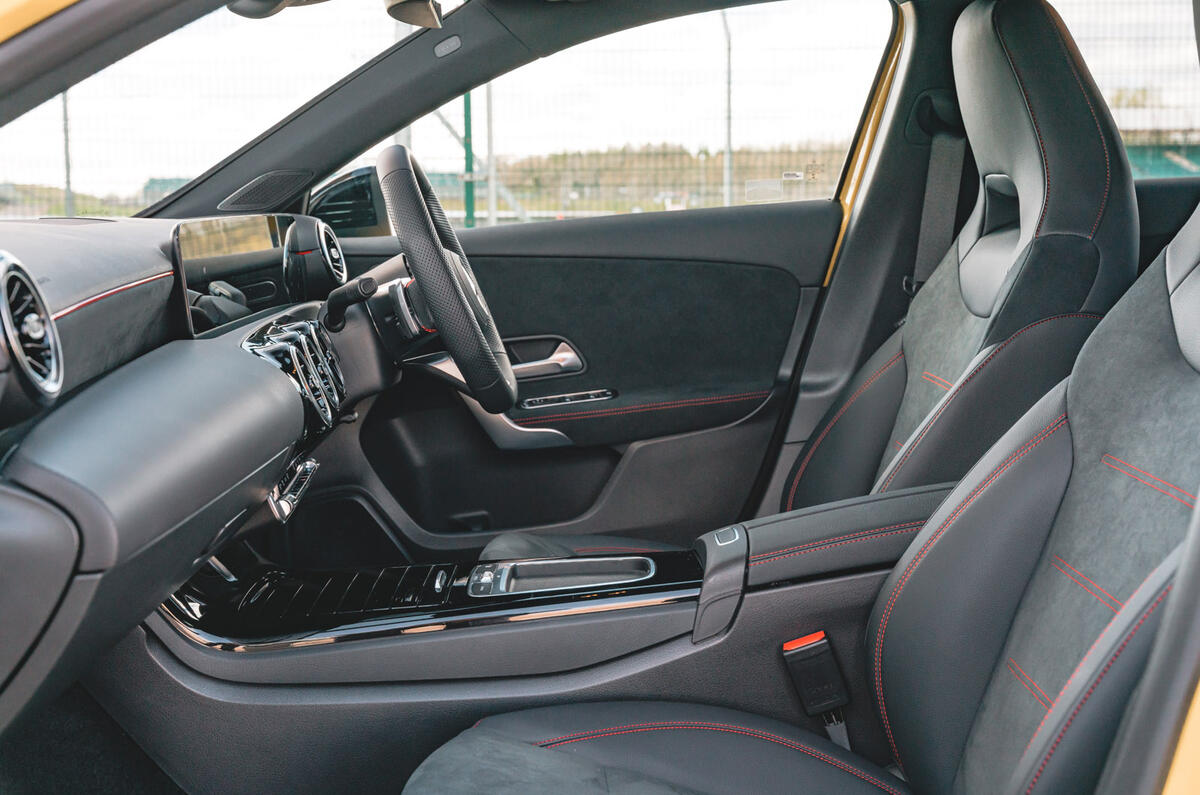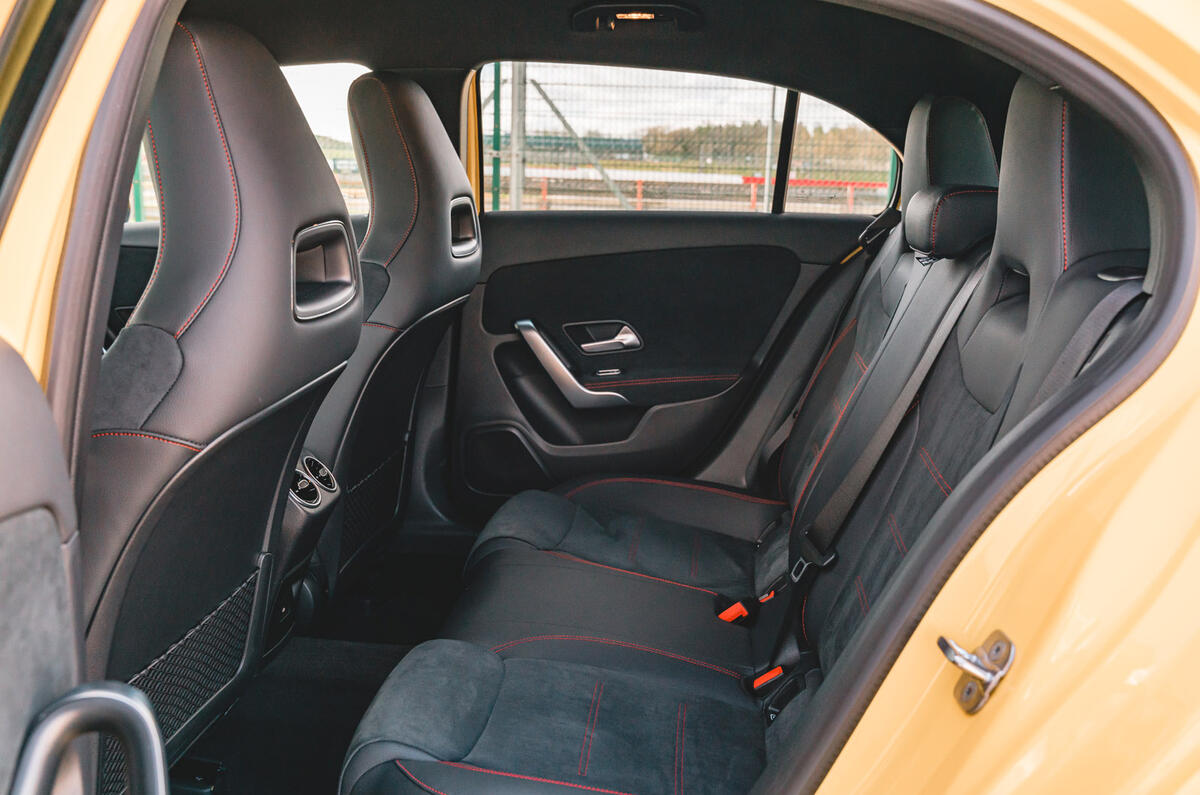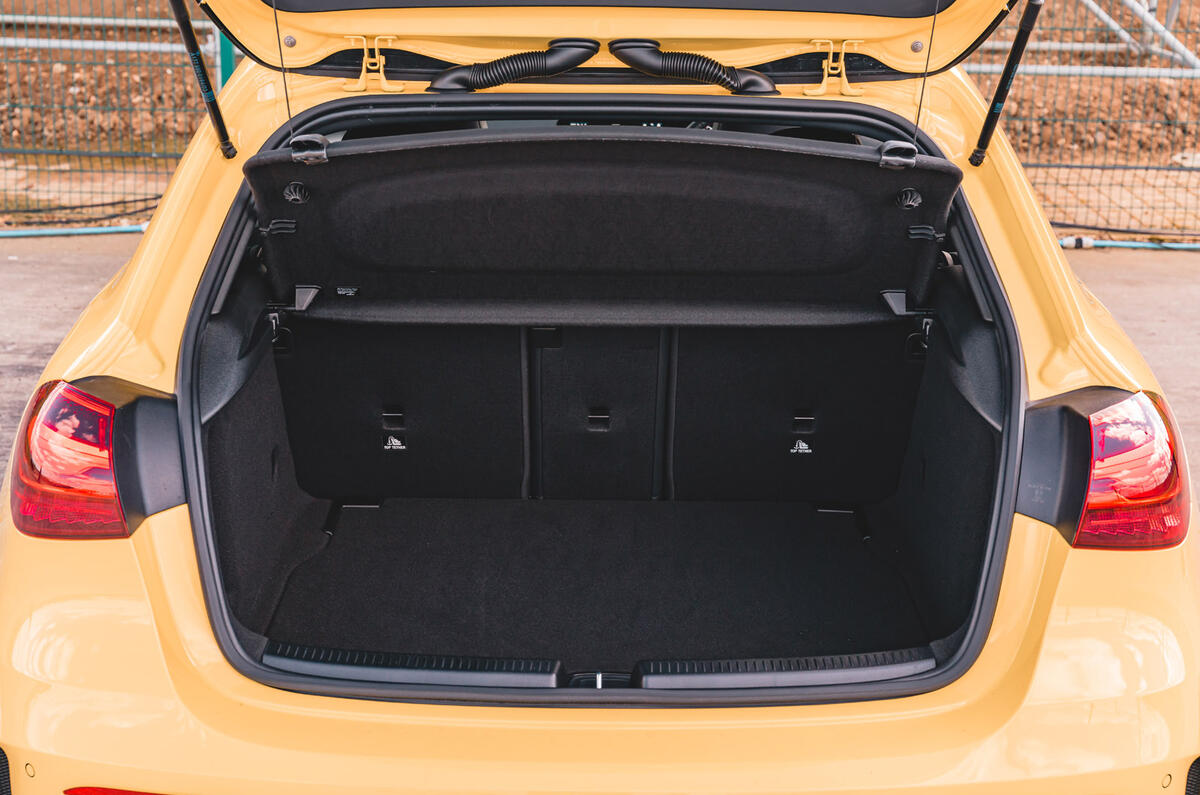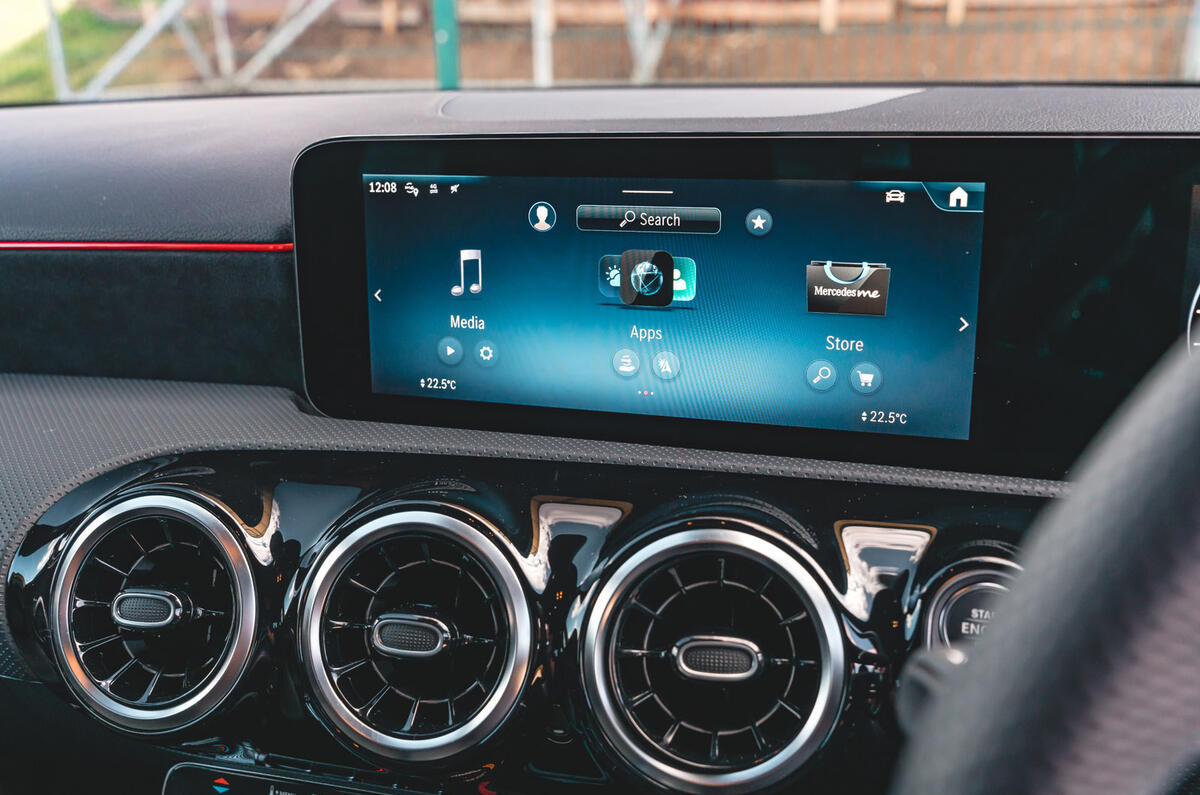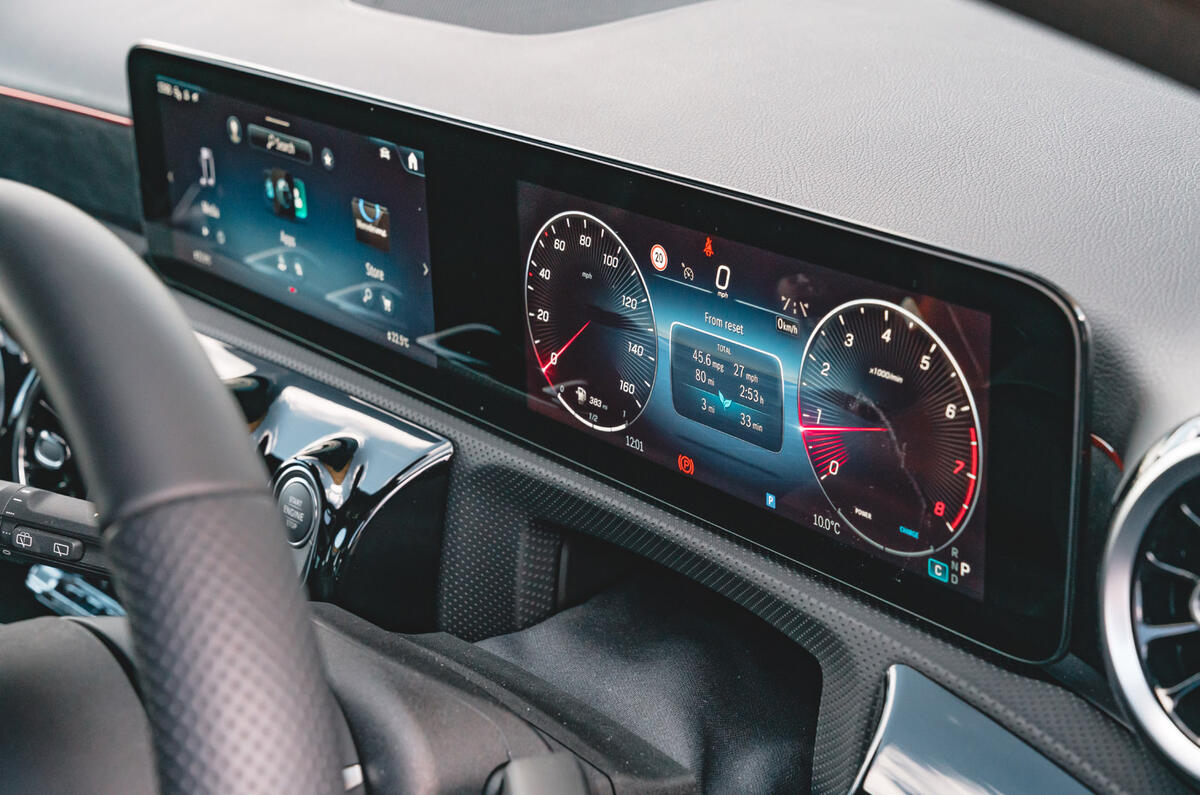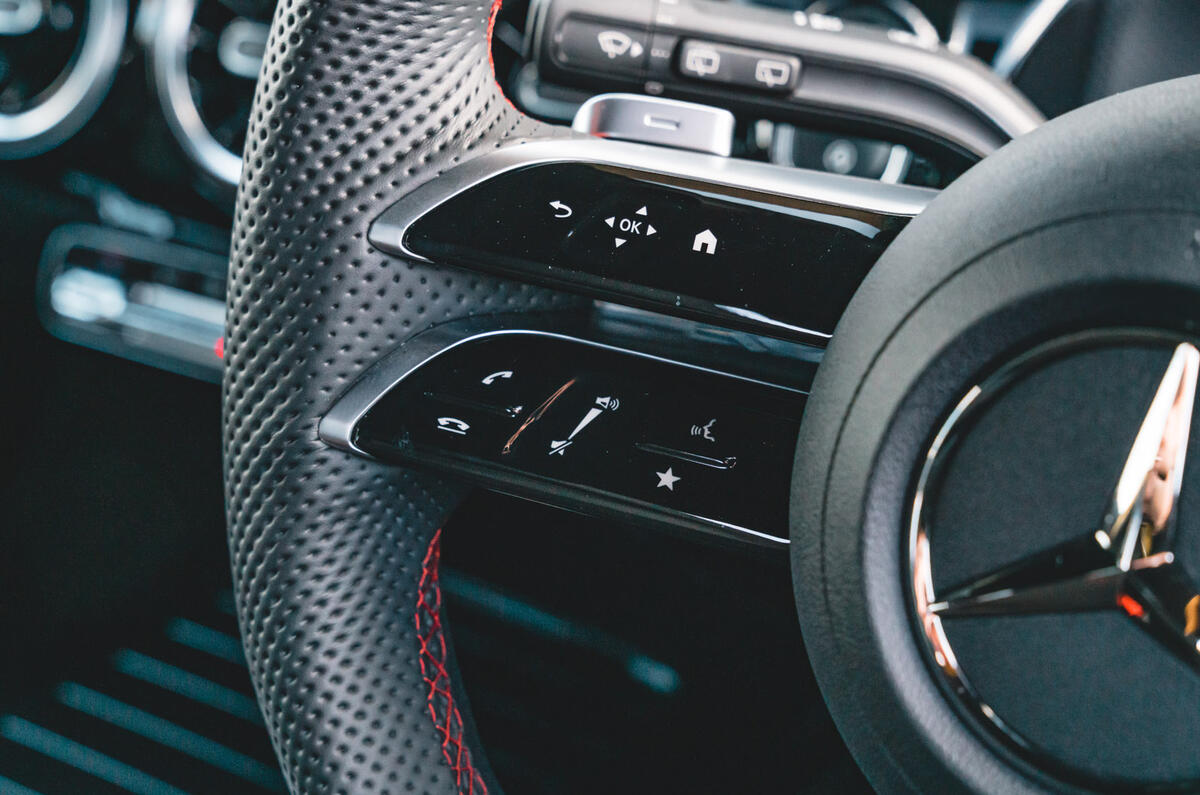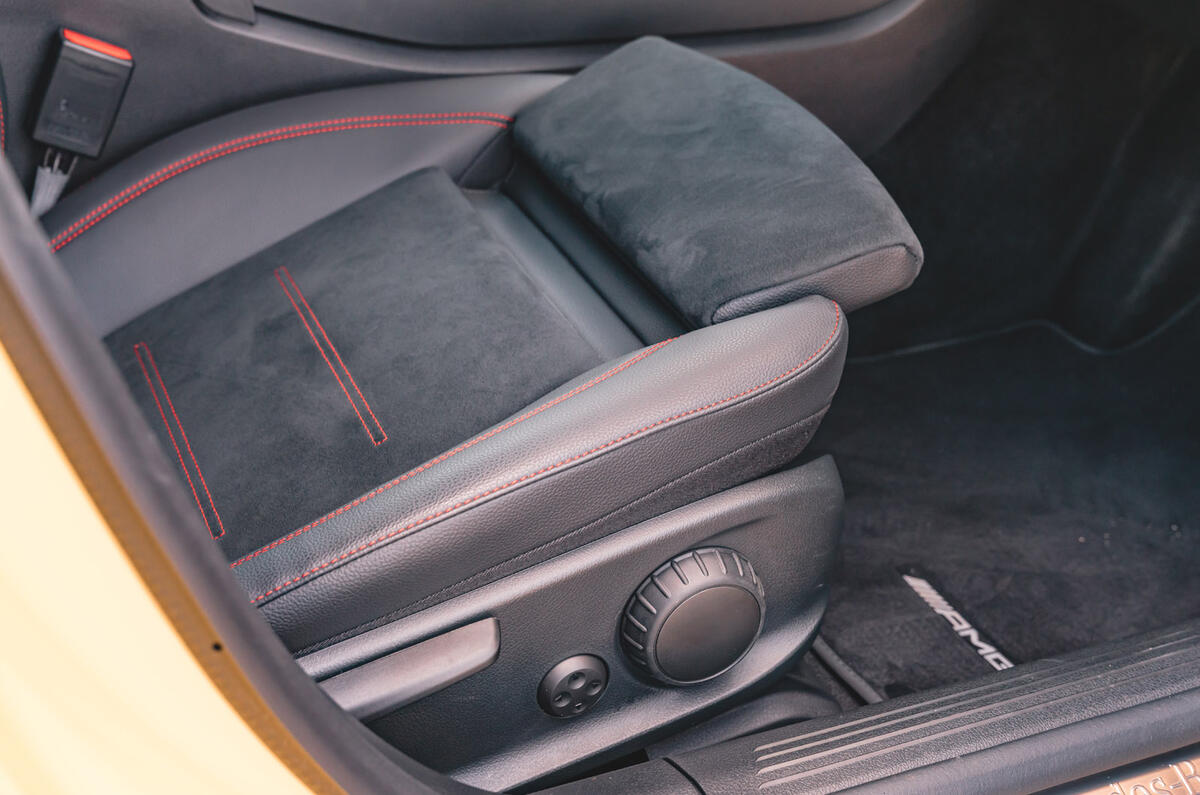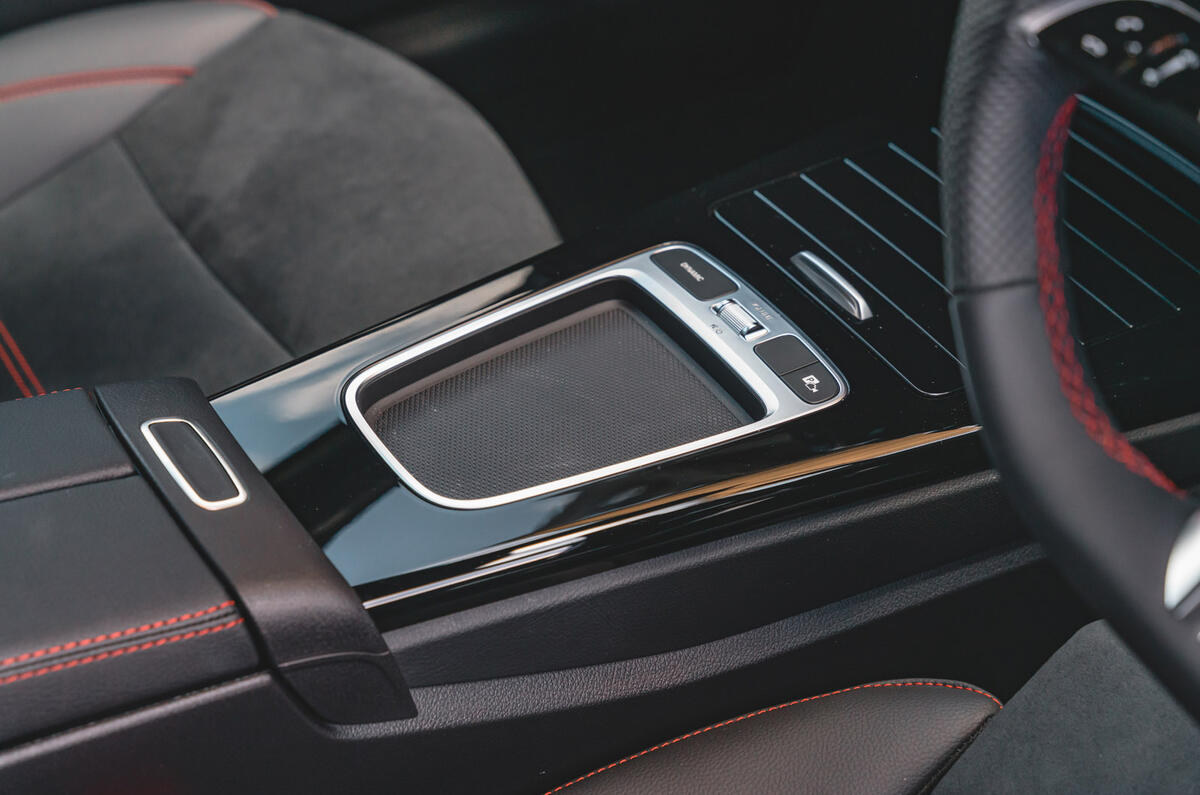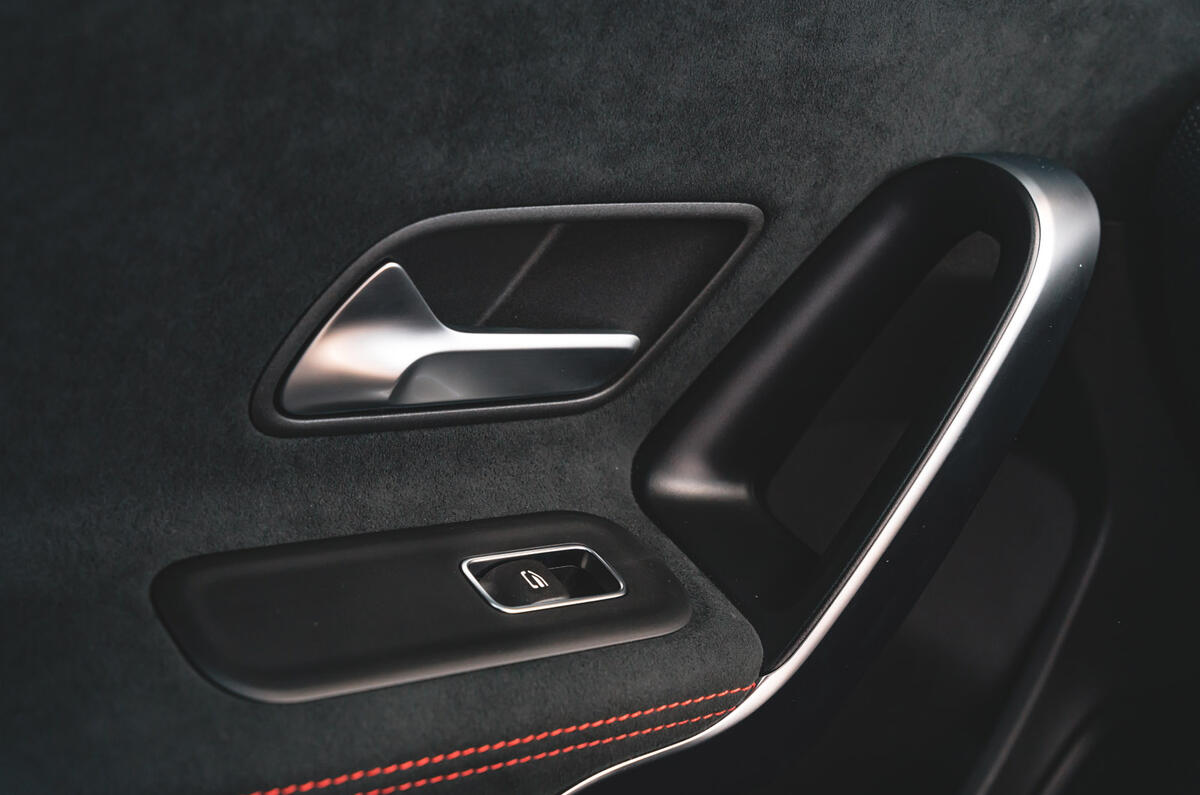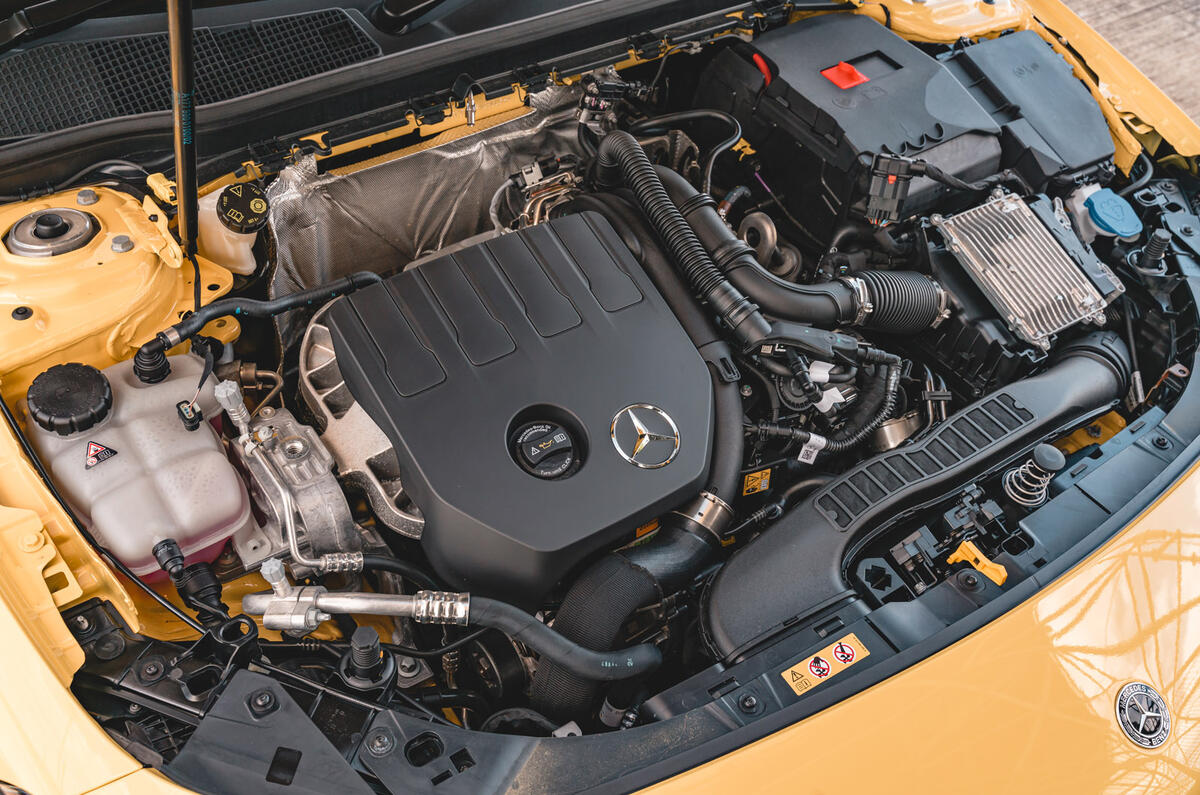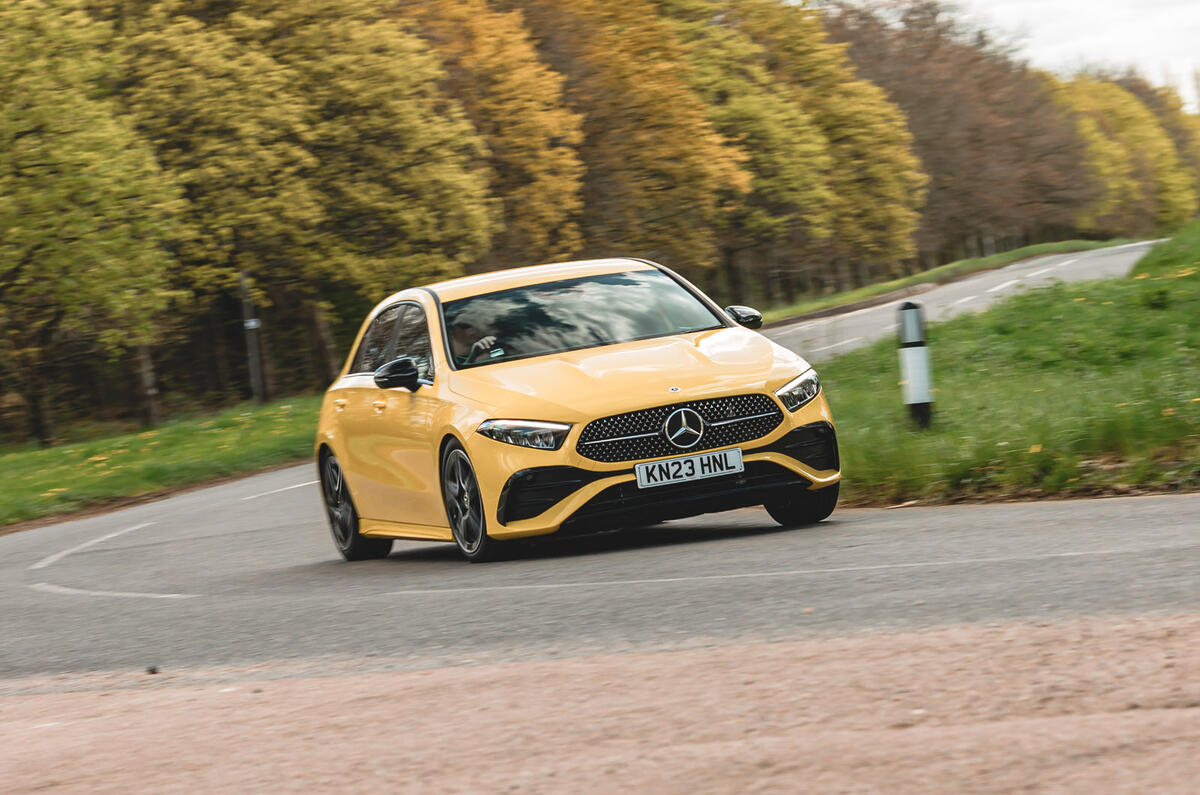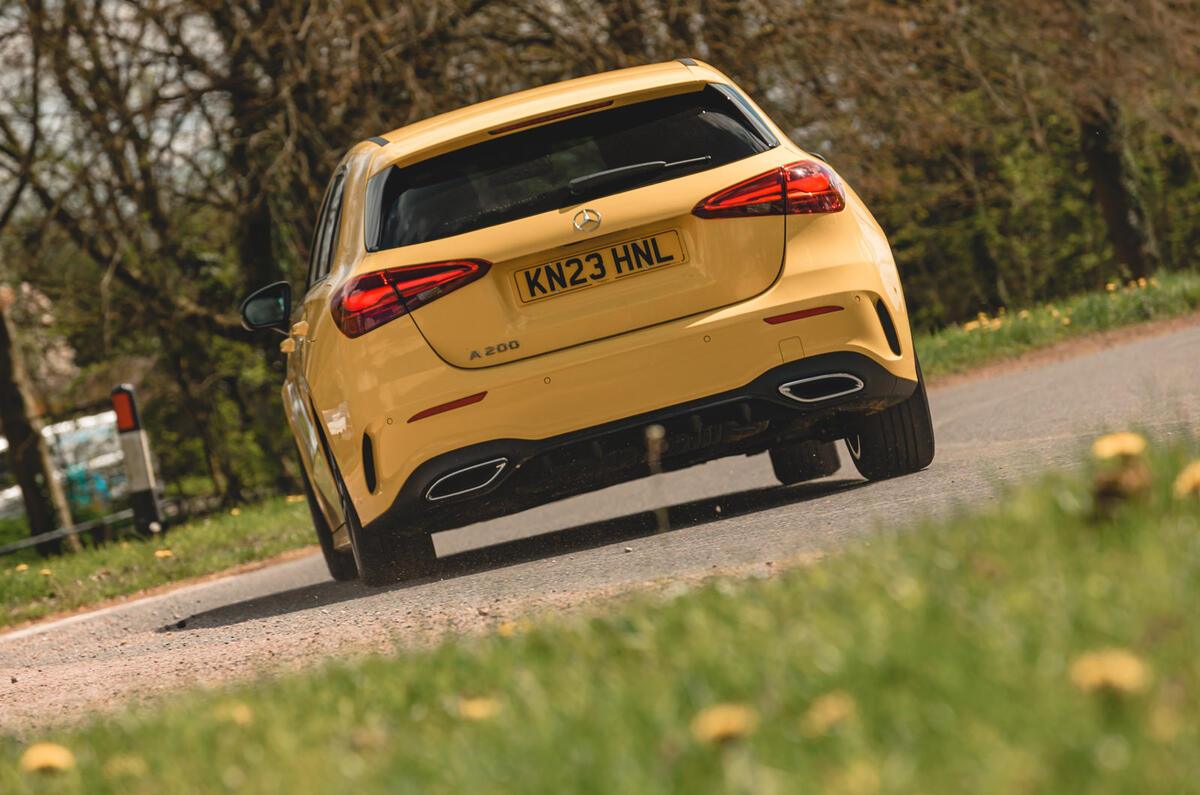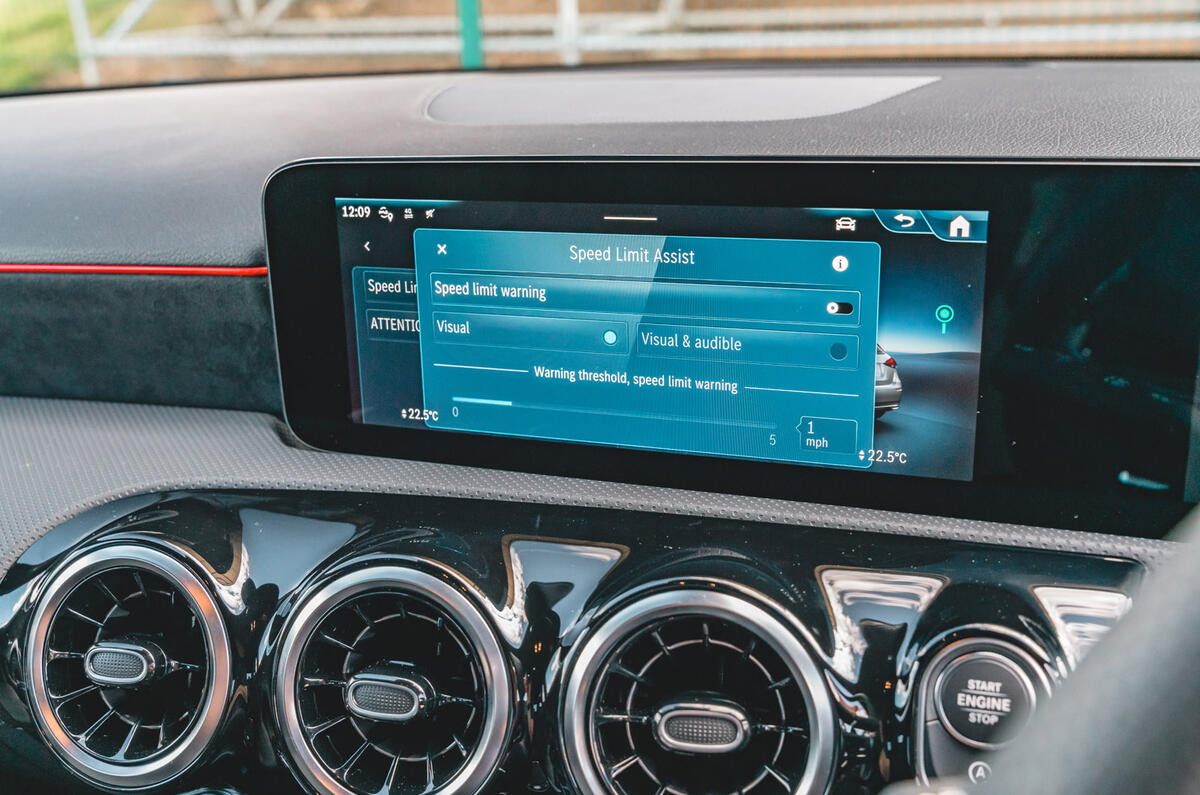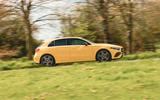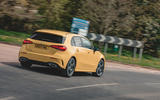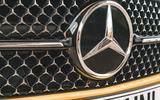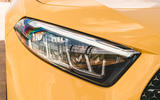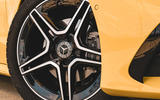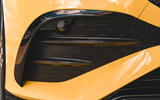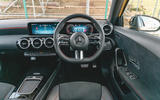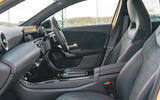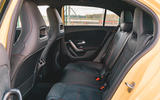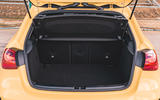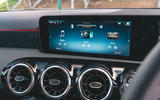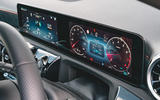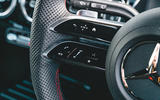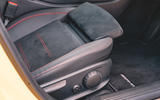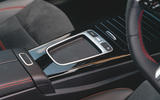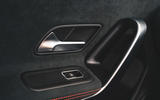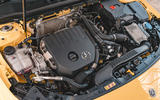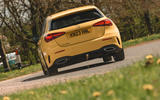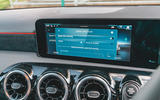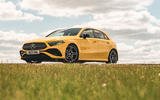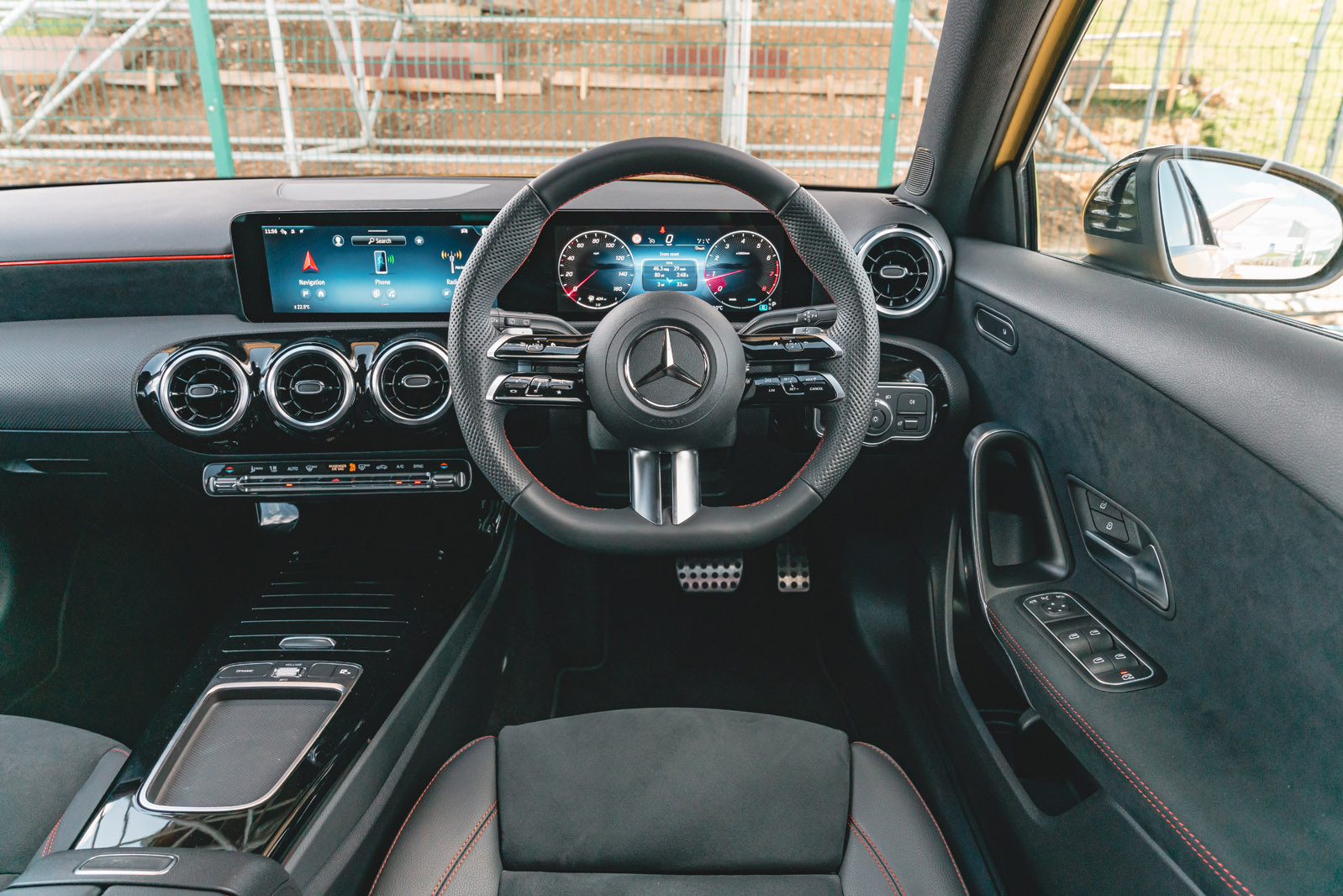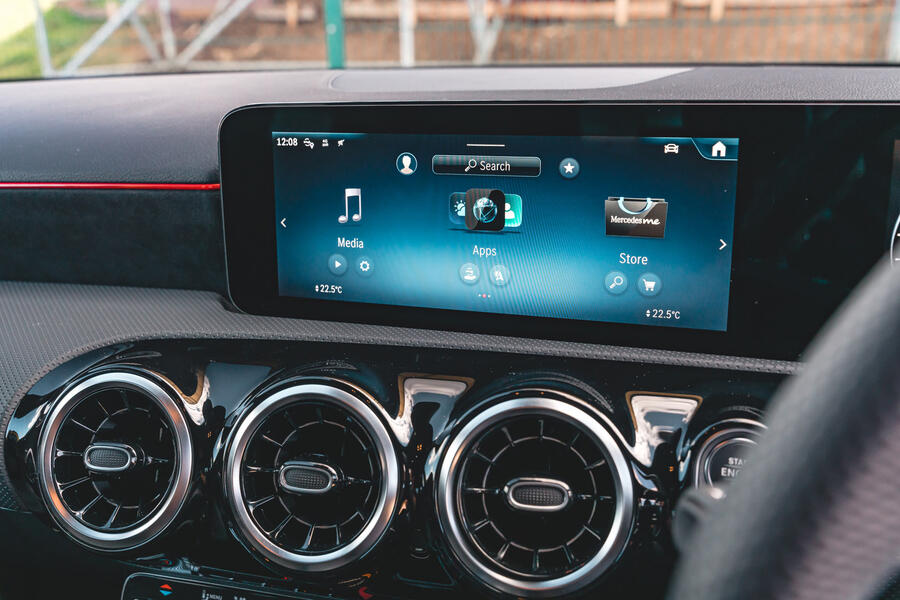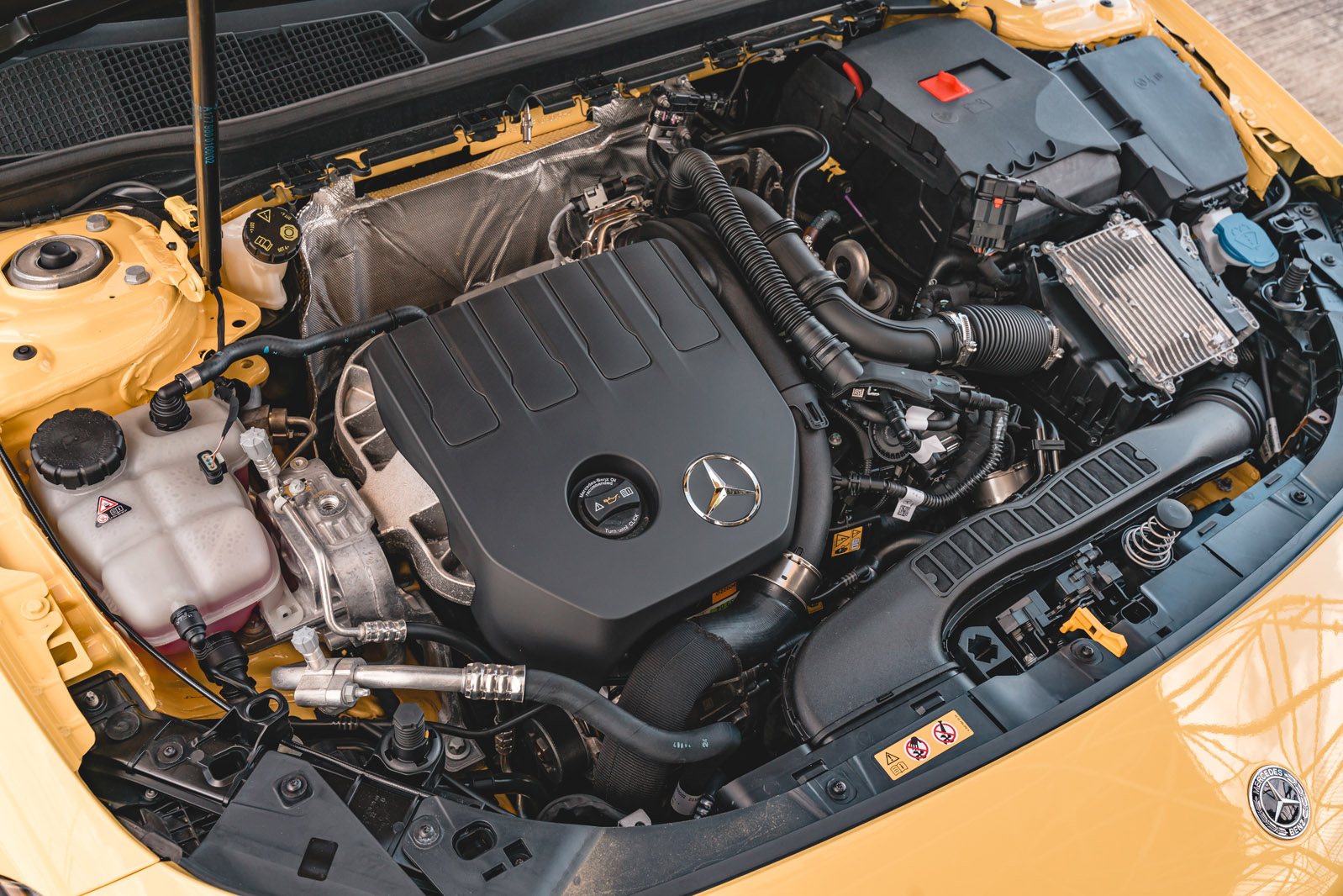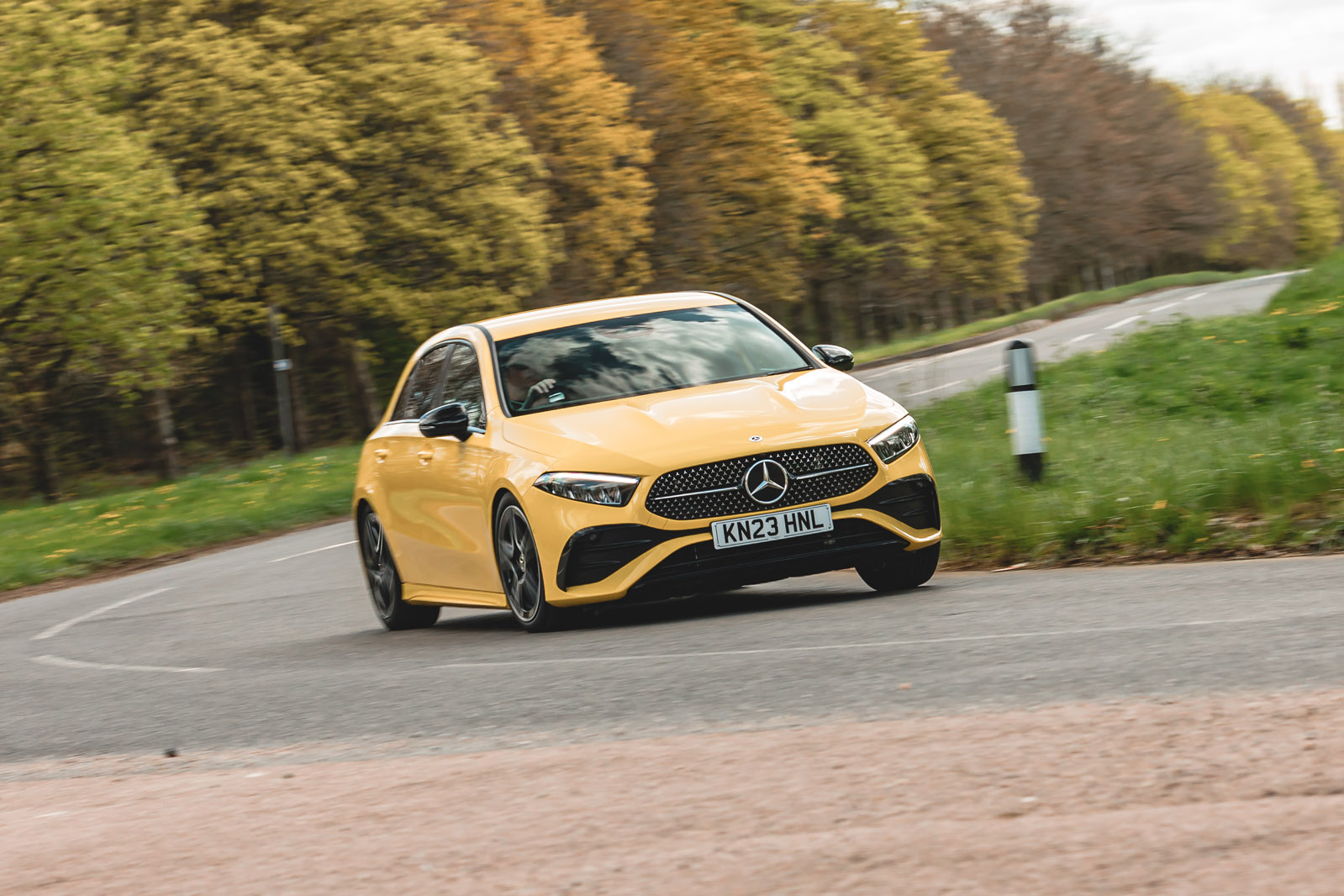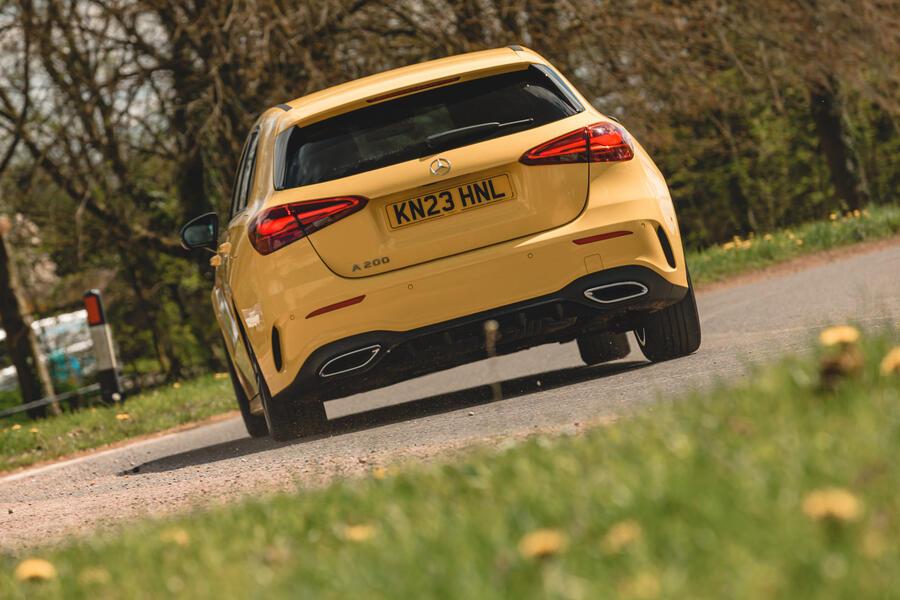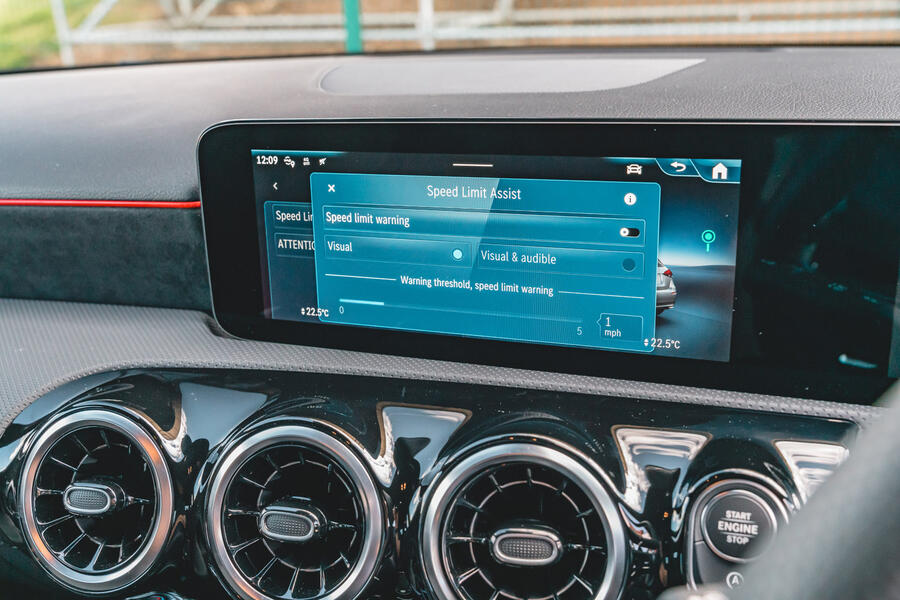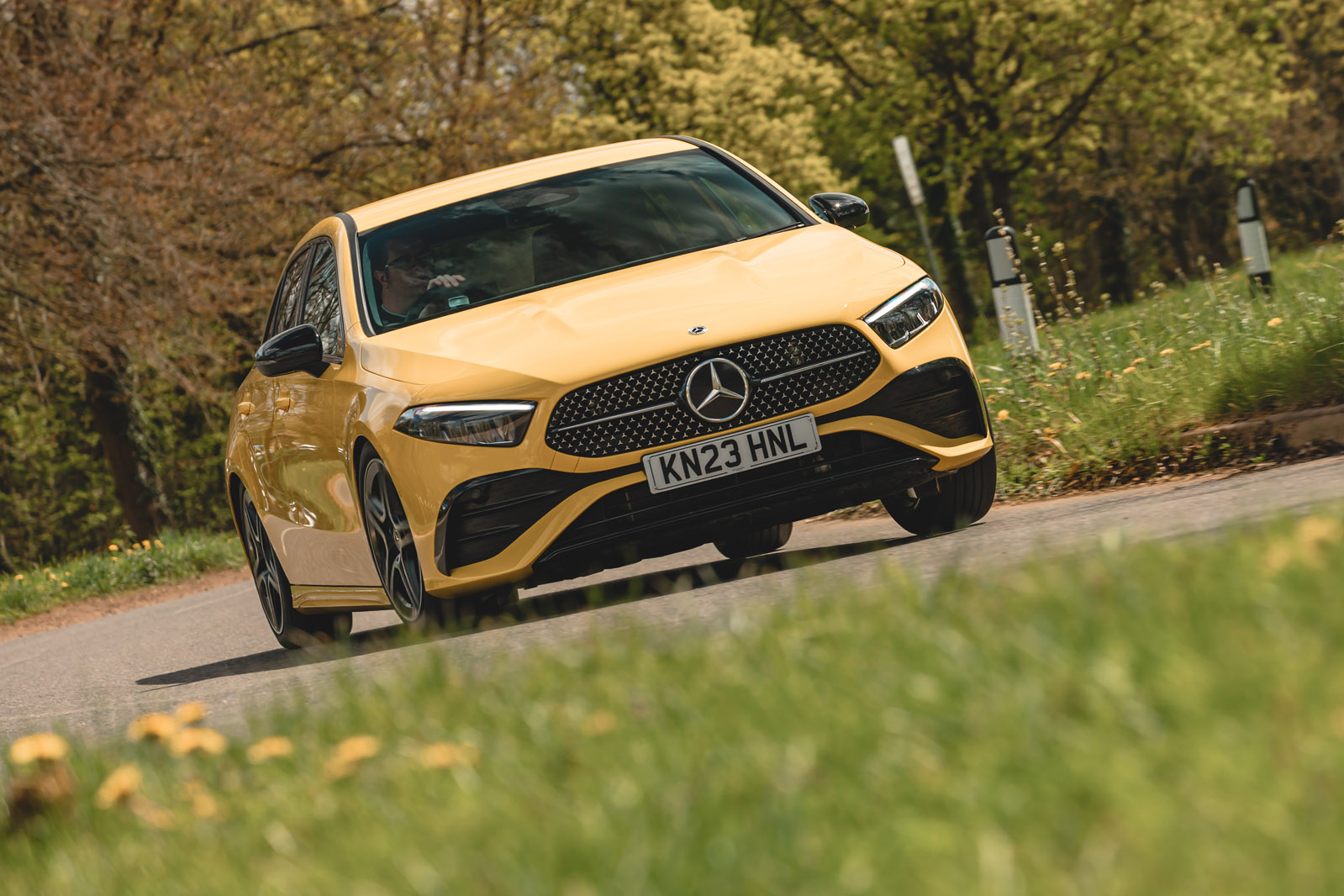Against our timing gear, the 161bhp A200 was more than 0.5sec quicker than its predecessor, despite having roughly the same power. That’s a performance hike big enough for upgrading A200 owners to clearly perceive at the wheel – and it makes the latest version feel like a car of enhanced responsiveness and drivability, as well as sharpened outright pace.
The dual-clutch gearbox seems to need a little notice and sharp prod of the accelerator to give its best. Our first two acceleration runs at the test track were slightly slower, but once the transmission had adapted to our full-throttle style, it began managing the clutches more urgently and positively, getting the car from 0-60mph in less than 8.0sec.
In everyday driving, the gearbox’s terse style of clutch actuation can seem a little impatient when you’re manoeuvring the A200, particularly if you just want a gentle step-off. But when the car is running, it manages ratio changes better – a bit hesitantly sometimes when kicking down but more smartly in manual mode.
The hybrid system also effectively masks the slightly lazy low-RPM throttle response of this 1.3-litre engine, producing a useful dose of accessible impetus in a higher gear without needing a downshift. So the A200 feels quite sprightly and keen in most circumstances – although that engine still doesn’t rev beyond 4500rpm with much enthusiasm.
Mechanical refinement is good at low and medium revs, though, the ISG handling engine stop-start particularly smoothly.
Brake power and pedal feel are likewise good.
The A250e PHEV is an intriguing one for the interested driver. It has plenty of outright power and lots of accessible torque when operating in Hybrid mode.
With an electric motor making useful power and torque itself and positioned upstream of the eight-speed automatic gearbox (so that it benefits from the car’s gearing at higher speeds), it also offers good performance when running in Electric mode, which survives a trip to the national speed limit without coming up particularly short on power or forcing you to rouse the car’s reciprocating pistons unless you mean to.
However, for those drivers who aren’t so interested in how the car is doing what it’s doing but would rather it just got on with doing it well, the A250e might begin to disappoint. At times, the gearbox can be slow to shift, and frustratingly so when you’re trying to snag reverse quickly during a hurried reverse park or three-point turn. At other times, it’s the stark contrast between the refined operation in evidence when the engine is off and the eruption of noise when the engine suddenly needs to start – and to rev – that rather explodes the bubble of luxurious calm that the car might otherwise inhabit.
Unfortunately, the 1.3-litre four-cylinder engine that Mercedes chose for this car isn’t the greatest. It’s reasonably quiet and economical at a cruise, but it can be noisy and coarse at revs. It is at least fairly economical, which means that once the car’s electric-only range (44 official miles here turns out to be more like 35 in the real world, depending on usage) has been used up on your daily commute, you might still average better than 55mpg in ‘range-extended’ running – which, among PHEVs, isn't to be sniffed at.
The A250e's biggest driveability failing, however, is the regrettable unpredictability of its braking system. A brake energy management system in the car automatically blends its trailing-throttle ‘recuperation’ settings up and down based on information that it’s getting from the navigation system and its forward sensors in a bid to slow you down at just the right pace and time for roundabouts and junctions, and to help you scavenge energy in heavy traffic.
However, the worst consequence is that every time you come off the accelerator and on to the brake pedal, you do so with a little trepidation, not quite knowing exactly how much ‘engine braking’ retardation and subsequent pedal ‘bite’ you’re going to get – and that just makes the car harder to drive smoothly than it should be.




